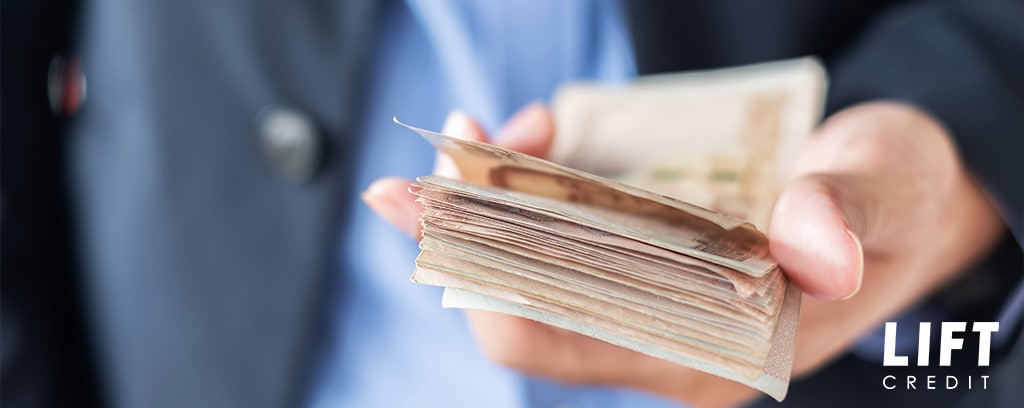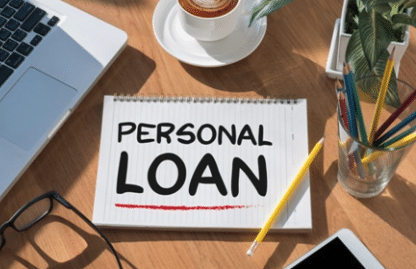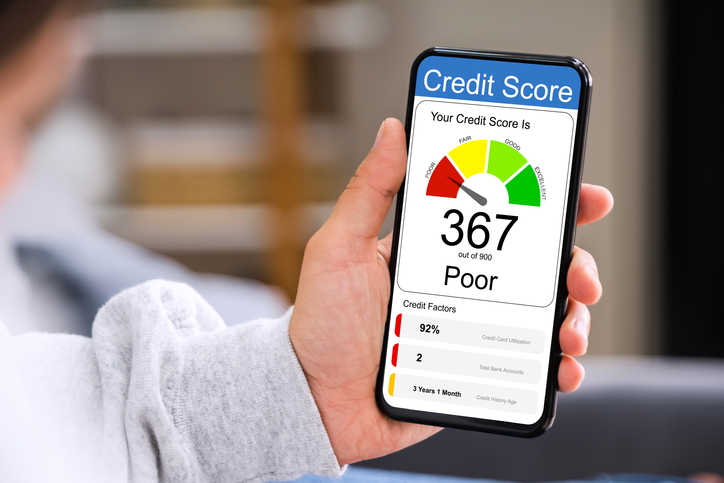1) Spending more than you earn
Plain and simple, this is the definition of debt.
This can be tricky if you’re living paycheck to paycheck, but if you have a hard time living within your means, ask yourself if what you’re spending your money on is necessary. If not, don’t buy it. If it’s all necessary, see #2.
2) Complaining about how much money you earn
Do you think you’re being underpaid? Try negotiating a raise, or chat with your boss to understand what’s required to receive a pay increase. If they value you, they’ll see the impending threat of you leaving for a higher-paying job. If a raise isn’t in the cards right now, you should actively be on the lookout for something with better pay, or adding to your skill set to qualify you for a better job in the future. Don’t just complain about it – work towards making a change.
3) Ignoring Your bills
If you’re frequently late with most of your bills, you’re probably spending 10 to 15 percent more each year on bills than you should in late fees alone. Credit card bureaus will take notice too, and start taking points off your credit score. (Low credit score = higher interest rates on everything you buy with credit. We wrote about it HERE.)
If you have a hard time making your payments in a timely fashion, setting up calendar reminders through your email or phone will help to alert you when bills are due. Or better yet, see #4.
4) Getting Paper Bills
Opening paper bills and writing checks requires continuous attention, which can sometimes result in late (or missed) payments. The obvious fix is to automate as many payments as possible, so they’re automatically paid on whichever day of the month you choose (make sure to set them up when you know you’ll have money in your account to avoid any overdraft bank fees).
5) Not keeping a budget
It’s just silly not to have one. We’re serious about this. (Find out how to make one HERE.)
6) Using your credit cards like they’re imaginary money
Credit cards are the greatest enabler of bad money habits, allowing you to spend impulsively and abandon your budget plans. If you’re not watching your account, you may not have any clue how much money you have until you’re denied at the grocery store checkout.
One of the most recommended methods of budgeting is to use envelopes filled with cash, because you can physically see how much money you have left. The takeaway: watch your account balance like a hound dog. If you’re prone to spending on a whim, try using cash.
7) Not shopping around
This applies to everything from clothes and groceries to the bigger expenses, like internet and cell phone services. Poke around your provider’s website to see if they’re currently offering any introductory or special rates. Once you’ve armed yourself with other offers of lower rates, call your provider to see if there’s any wiggle room; many have price-match guarantees because they would rather offer you a lower rate than lose your business.
8) Carrying balances on your credit cards
Responsible credit card use will boost your credit score, but if you can’t pay your entire bill on time (or “carrying a balance”), you’ll get penalized with interest, which will get you further into debt. There is no need to carry a balance in order to reap the rewards of credit card use. (We wrote about this HERE).
9) Not monitoring your credit score
Your credit score determines how high or low your interest rates will be on future loans, so it’s critical that everything on your report is correct. You can request one free copy of your credit report each year from the three credit bureaus (Experian, Equifax, and TransUnion). Things like payments marked late that were actually on time can unnecessarily ding your score. Thankfully, The Fair Credit Report Act allows for the deletion or correction of any inaccurate, outdated, or unverifiable information if the data comes out in your favor after an investigation. If you notice errors, dispute anything that you think shouldn’t be on there by sending a correction letter to each of the credit bureaus that shows the error, or submit the dispute online. Don’t use a credit repair company – legally, you can do it all yourself for free.
10) Getting credit cards at every store
They usually aren’t worth the bonus points or savings you get for signing up. Not only does it lower your credit score to have several hard inquiries, but store cards typically come with a high interest rate. Two or three credit cards is all you really need to maximize their benefit on your credit score – if you have too many, lenders wonder whether you can manage all of those accounts.
11) Paying the minimum
Paying the minimum is way better than paying nothing, but it forces you to keep paying interest, and won’t help you pay off the balance. By paying interest on interest, you lose any savings from buying those cute shoes on sale. Pay as much of the balance off as you can each month; paying in full will help you avoid interest charges altogether.
12) Thinking more stuff will make you happy
Retail therapy may provide temporary joy, but the happiness found in buying something new rarely lasts longer than a few days. Knox College psychology professor Tim Kasser attributes our modern-day materialism to our early ancestors who had to make “stuff” to survive, which helps us feel secure. His studies found that when people become more materialistic, their emotional well-being actually takes a dive (http://time.com/22257/heres-proof-buying-more-stuff-actually-makes-you-miserable/).
He also found that when we place a higher value on our relationships with other people, we become happier, and stop wanting as much stuff. Maybe forgiving your brother and inviting him over for dinner will help you get out of debt. It’s worth a shot.









